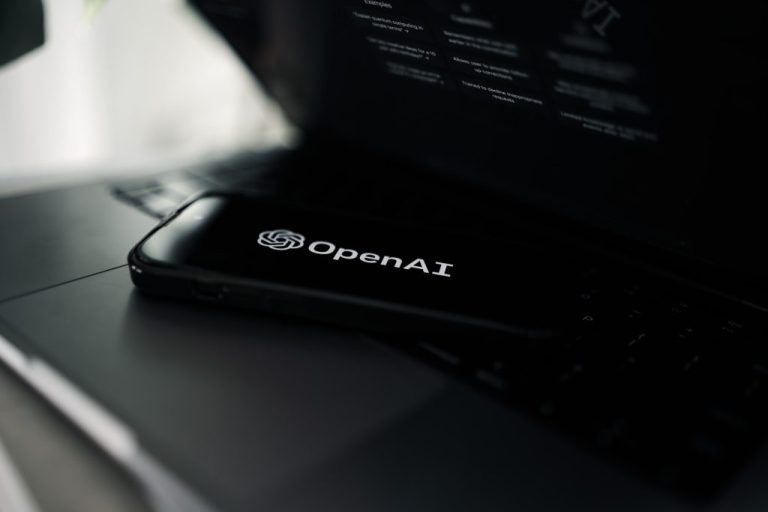Future Insights: Bold Predictions for the 2022 AI Industry Revolution
Editorial: Our Predictions for the AI Industry in 2022
The AI industry has seen significant growth as businesses sought to maintain continuity amid rapidly changing circumstances. Companies already invested in AI are now doubling down, taking advantage of the benefits that come with it. As we approach the new year, it’s important to consider what the AI landscape might look like in 2022.
Tackling Bias
This year, our ‘Ethics & Society’ category garnered considerable attention, reflecting a growing concern around trust in AI systems. Bias within algorithms poses a significant challenge and has been highlighted in various discussions. For AI to gain wider acceptance, addressing these biases is crucial. Explainable AI (XAI) offers a path forward, providing users with insights into how AI algorithms arrive at their conclusions.
Robert Penman, Associate Analyst at GlobalData, predicts that “2022 will see the further rollout of XAI, helping companies identify discrimination in their algorithms. Businesses that hesitate to amend their models will attract increased scrutiny as AI’s role expands within society, fueling demands for transparency.” A notable case illustrated the risks of bias when the Dutch government’s use of AI to detect welfare fraud was deemed a violation of European human rights.
Furthermore, minimizing biases in training datasets remains a formidable challenge in XAI implementation. Even major corporations like Amazon have had to abandon potentially biased projects, such as their hiring tool, which faced criticism for disadvantaging women. Many organizations will seek to enhance their XAI capabilities in 2022, recognizing that the risk of reputational damage is substantial. This trend may lead to numerous acquisitions of startups focused on synthetic data training.
Smoother Integration
Many enterprises remain uncertain about how to embark on their AI initiatives. While approximately 30% plan to adopt AI within the next few years, a staggering 91% anticipate encountering significant hurdles. Addressing the confusion surrounding AI implementation could lead to broader acceptance.
Dr. Max Versace, CEO and Co-Founder of Neurala, likens the emergence of simple AI platforms to the rise of WordPress in the early 2000s: “Solutions that facilitate effortless AI model creation and maintenance will simplify entry into the field. In sectors like manufacturing, such platforms will offer integration options, hardware flexibility, user-friendly design for non-experts, minimal data requirements, and a low-cost entry point, making the technology accessible to a diverse range of customers.” Expect to see the growth of AutoML platforms throughout 2022 and beyond.
From the Cloud to the Edge
The shift of AI operations from the cloud to edge computing is poised to accelerate in 2022. Edge processing presents numerous advantages, including enhanced speed, reliability, privacy, and cost efficiency. Versace emphasizes the necessity of building efficient AI algorithms using unique datasets that may evolve over time. He states, “To optimize this process, AI needs to interface directly with the data-producing sensors and operate at the computing edge. Cloud infrastructure should be utilized only for backups or additional functionality, rather than becoming a bottleneck for critical operations—such as those in manufacturing, where reliance on cloud connectivity can disrupt production.” Expect to see more companies exploring the benefits of edge AI implementation in 2022.
Doing More with Less
Concerns about the AI industry’s dominance by major tech companies due to their expansive data reserves have been prevalent. However, recent advancements are enabling algorithms to be trained using fewer data inputs, leveling the playing field and encouraging innovation across the board.
Utilizing smaller, yet more distinctive datasets for each deployment could enhance effectiveness. We anticipate that more startups will demonstrate that reliance on major tech companies is unnecessary in 2022.
Human-powered AI is on the rise. Explainable AI (XAI) systems are expected to yield outcomes that are comprehensible to humans, with AI decisions becoming even more valuable due to human involvement. Varun Ganapathi, PhD, Co-Founder and CTO at AKASA, highlights the necessity of human presence for AI to be truly effective: “For AI to genuinely provide value and efficiency, human guidance is essential to push projects towards completion. Without oversight, AI struggles to reach its full potential. This trend is likely to grow. Ultimately, machines will report to humans, who will serve as the managers overseeing both human staff and AI systems that need to be trained for their specific tasks. Similar to humans, AI requires continuous learning to enhance performance.” Increased human engagement also fosters greater trust in AI, countering fears that AI may replace jobs or make decisions devoid of crucial human traits such as empathy and kindness. Expect that human involvement will lead to more valuable AI-driven decisions in 2022.
Avoiding vendor lock-in is a priority for the telecommunications sector, which is pursuing an innovation known as Open RAN. This initiative aims to free operators from dependence on specific vendors and encourage smaller competitors to challenge the current market dominance held by a few firms. Businesses are keen to prevent being ensnared by any AI vendor. Doug Gilbert, CIO and Chief Digital Officer at Sutherland, explains: “Early adopters of basic enterprise AI integrated within ERP/CRM platforms are starting to feel confined. In 2022, we will witness organizations taking proactive measures to avoid AI lock-in, and rightly so, as AI is inherently complex. When embedded in systems like ERP, organizations surrender control, transparency, and innovation to the vendor rather than maintaining it themselves. AI should not be seen merely as a product or feature; it is an evolving set of capabilities. To extract the most impactful results from AI, more enterprises will pivot towards a strategy that combines various AI capabilities to address specific challenges or achieve outcomes. This shift implies a growing demand for advanced and customizable AI solutions, with businesses likely to deprioritize or eliminate costly foundational AI features within their enterprise platforms altogether.” In 2022 and beyond, a trend towards AI solutions that mitigate vendor lock-in is anticipated.
Chatbots are also enhancing their capabilities. Many of us have felt the frustration of wanting to talk to a human instead of navigating a chatbot. “Today’s chatbots, while beneficial, have considerable limitations. Natural language processing is set to be surpassed by neural voice technologies that enable near real-time natural language understanding (NLU),” comments Gilbert. “With capabilities to grasp complex sentence structures and even emotional nuances, NLU will refine the accuracy and overall experience of conversational AI.” This advancement may lead to two significant outcomes: real-time augmentation of human assistance by suggesting responses based on user behavior or expertise, and a more positive customer experience facilitated by a more natural interaction through NLU. In 2022, chatbots are poised to offer a more human-like interaction.
It’s not merely about quantity, but the quality of data in AI systems. A successful AI framework relies on a functioning model and high-quality training data. Collecting vast amounts of data is futile if it’s not accurately labeled and of high caliber. Gabriel Straub, Chief Data Scientist at Ocado Technology, states: “Andrew Ng has emphasized data-centric AI, highlighting that enhancing data quality can yield better results than focusing solely on algorithm improvements, at least for equivalent effort levels. How can this be practically implemented? Ensuring that data consumers remain central to your data strategy and that data governance acts as a facilitator for safe value extraction from data, rather than locking down data, will significantly enhance outcomes.” Expect that in 2022, the AI sector will prioritize data quality.
Want to delve deeper into AI and big data insights from industry experts? Check out the AI & Big Data Expo. Upcoming events will take place in Santa Clara on May 11-12, Amsterdam on September 20-21, and London on December 1-2.
NVIDIA Fuels Germany’s AI Manufacturing Leadership in Europe
As of June 2025, NVIDIA’s strategic initiatives aim to bolster Germany’s position at the forefront of AI manufacturing across Europe. By leveraging innovative technology and partnerships, Germany is set to dominate this critical sector.
Advancements in MedTech AI and Clinical Applications
On June 12, 2025, the focus shifts to healthcare as AI technologies in MedTech are evolving rapidly. These advancements are streamlining clinical applications and enhancing patient outcomes, showcasing AI’s transformative power in medicine.
The AI Execution Gap: Unpacking Industry Challenges
Despite the potential of artificial intelligence, June 12, 2025, highlighted a significant issue: approximately 80% of AI initiatives fail to reach full production. Understanding the factors behind this execution gap is crucial for the successful integration of AI technologies in various sectors.
AI Usage Approved for Teachers in England
On June 11, 2025, educators in England received the green light to incorporate AI tools in their teaching methodologies. This decision marks a pivotal moment in modern education, enabling teachers to enhance learning experiences through technology.
Artificial Intelligence, Machine Learning, Space
The role of machine learning in enhancing cloud-native container security
41827 view(s)
Artificial Intelligence, Finance, Logistics
Innovative machine learning uses transforming business applications
14348 view(s)
Applications, Artificial Intelligence, Face Recognition, Industries, Security
AI and bots allegedly used to fraudulently boost music streams
12182 view(s)
Artificial Intelligence, Space, Sponsored Content
The benefits of partnering with outsourced developers
10401 view(s)
See all Latest
AI’s influence in the cryptocurrency industry
Teachers in England are now authorized to incorporate AI into their curriculum.
Sam Altman from OpenAI states that the superintelligence era has begun.
Education, Legislation & Government
Teachers in England given the green-light to use AI
Artificial Intelligence, Sponsored Content
AI’s influence in the cryptocurrency industry
AGI, Artificial Intelligence, Companies, Development, Ethics & Society
Sam Altman, OpenAI: The superintelligence era has begun
Explore more about us and reach out through our contact channels.
Categories include: Applications, Companies, Deep & Reinforcement Learning, Enterprise, Ethics & Society, Industries, Legislation & Government, Machine Learning, Privacy, Research, Robotics, Security, Surveillance, Sponsored Content.
Deliver all the latest technology updates and premium content directly to your inbox. Stay informed about the rapidly evolving tech landscape.







